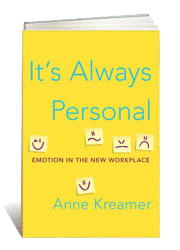R. William Holland is the author of a new book, Cracking the New Job Market. Holland is also founder of R. William Holland Consulting, LLC, specializing in HR and career management. I had a chance to catch up with Holland and discuss his new book.
How did you decide to devote your career to HR & career management?
I am like many people who got to their current career quite by accident. I was on the faculty at the University of California, Riverside and after 6 years of professorial life decided to move into private industry. Human resource management was the path of least resistance. Once I got started, it was clear the profession could use some new ideas. Years later, here I am combining my academic training and practical experience to publish on subjects of interest to everyday people. As luck would have it, the way in which employees survive and prosper in this chaotic and stressful environment is also of considerable interest to the institutions that employ them. I now have a new career—consulting with employers and employees.
What inspired you to write this book?
As the Chief Human Resources Officer for the Business Process Outsourcing division of Andersen Consulting, I could see the impact that globalization and technology was having on the lives of individuals. In the world of outsourcing, employees have to transfer from one company to another—something few ever thought they would have to do. This process may sound easy, but it is very stressful and only the tip of the iceberg. Because of globalization and rapid advances in technology we are in the midst of a worldwide redeployment of the workforce. The idea of “jobs for life” has quickly morphed into jobs for only as long as you are needed by your employer—and far too often, that’s not very long. The implications of this change began to touch every aspect of our lives; and the world of work, as we knew it, changed.
It was clear that individual workers could use some help in coming to grips with what was happening as well as with understanding its implications. My first two books on the subject were written with that in mind and are appropriately titled: Are There Any Good Jobs Left? Career Management in The Age of the Disposable Worker (Praeger, 2006) and Cracking The New Job Market: The 7 Rules for Getting Hired in Any Economy (AMACON, 2011).
Your book emphasizes the importance of using “vale-added key words” for their resume. What’s the biggest mistake people make when identifying these value-added key words?
The biggest mistake comes as a result of not knowing about the exercise in the first place. Trying to use a generic resume to gain the attention of hiring managers puts you behind the 8-ball in your competition with others applying for the same jobs but who understand how to use their resumes as more customized instruments. But even those who know about the keyword exercise make the mistake of viewing the process too narrowly. That is they see it only as a tool for resume customization. The truth is that moving from one job to another (as the instability of jobs may dictate) requires more than a customized resume. It requires an entire shift in mindset about the job market and how it relates to your career.
How does someone know when they have made the transition to a new mindset?
That’s a great question and I am glad you asked it. “Process” oriented applicants tend to be more interested in responding to the specific challenges posed in the position description. For example, if the position calls for someone with 5 years of project management experience, they will make sure they mention that credential in their resume. Though that is a step forward as compared with more generic resumes, it is far from sufficient. More experienced applicants (those with a more developed mindset) will go further to understand the value the hiring organization wants created when they ask for specific qualifications. That’s why it is important to not only mention that you have 5+ years of project management, but also demonstrate what you were able to accomplish as those skills were deployed especially as it relates to what the employer needs you to accomplish if you are the successful candidate.
You will have a sense of having crossed the mindset threshold when the first question you ask about a new job opportunity is: “What do they need me to accomplish?”–rather than “Will my resume get through their screening process.” The two questions bring different mindsets to the same situation.
Many job seekers struggle with writing accomplishment statements. What are your best tips for overcoming that hurdle?
Good accomplishment statements are difficult to write and are best completed in stages rather than in one fell swoop. Here is a five stage process to follow that should help.
- Carefully review the position description of the job in which you are interested and identify the “keywords” the employers uses to describe the value they want creation in filling the job.
- List your various professional experiences Reverse chronological order is usually best. At this point, do not worry about polishing the verbiage. Just put the accomplishments in writing.
- Qualify and quantify each experience by specifically stating what was accomplished with each accomplishment.
- Where possible, insert the exact same language used in the position description the company used to describe the value they want created once the position is filled.
- Add qualifiers that demonstrate managerial ability—i.e., qualifiers that demonstrate sensitivity, complexity and unusual circumstances.
For more detail, consult chapter 2 of my new book, Cracking the New Job Market.
Your book mentions that job seekers should coach their job references. Do you have any examples of the best way of doing so?
First, make sure each reference will give you a “strong” recommendation. Ask them directly, “Are you in a position to give me a strong recommendation?” If you sense hesitation but they say yes, accept but hesitate to add them to your final list. Anything but the strongest of recommendations from your hand-picked references will be a red light to hiring managers.
Second, coach your references in areas that are of particular interest to interviewers. You know what those are from the position description you used to customize your resume. For example, if the position description calls for someone with project management skills and political savvy, you might say the following to a reference: “I hear they are interested in someone with project management and leadership skills—you know–someone one who has the political savvy to get things done. Any comments you could make about these would be helpful. Also, let me know if you need additional information about what I have accomplished in these areas.“ If they want more information, give them a carefully scripted set of accomplishment statements.
What are your best tips in using LinkedIn for the job search?
LinkedIn is a wonderful social networking tool specifically designed for white collar professionals. As such there are numerous ways to use it for purposes of advancing your job search including: letting all your contacts know you are looking for employment; engaging your network for job leads; getting introductions to people you do not know but who are connected to others in your network; contacting people you and your network are otherwise not connected to, including hiring managers; making your on-line resume available and attractive for employers; and many other ways.
For additional tips, pay attention to how others use it for networking and job search purposes. There are more ways to use LinkedIn than can possibly be included here.
It is a difficult job market– Any other pieces of advice for aspiring job seekers?
It’s a new day out here and the rules continue to evolve day by day. Do all you can to find out what the new rules are and apply them to your situation. Until you are re-employed and perhaps even after, stay tethered to the job market by keeping your skills current. This may mean taking a class or two; doing volunteer work that allows you to use, develop and demonstrate your professional skills; or taking on project assignments. As you do these things make sure they are more than just activities. That is, accomplish something of which you can be proud and can be used to enhance your credentials.



